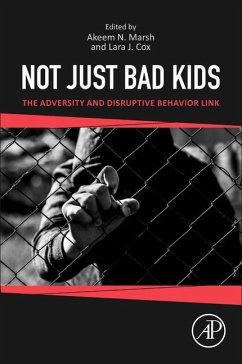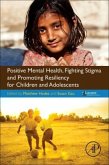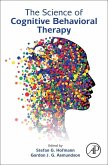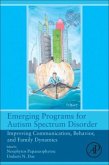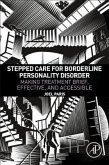Not Just Bad Kids: The Adversity and Disruptive Behavior Link explores the theory that all behavior makes sense in context. If you understand a person's frame of reference - their background, history and experience - you can imagine what might be driving their behavior. The book describes the social, cultural and environmental factors that shape the lives of many youths, including early childhood attachment which sets the foundation for how they interact with authority figures. The book also delves into an explanation of conduct disorder which is characterized by persistent, repetitive behaviors that violate the basic rights of other human beings and break rules.
Studies have shown that conduct disorder affects 1-4% of adolescents in the United States and oppositional defiant disorder is estimated to develop in approximately 10.2% of children. The presence of DBD is also known to be more prevalent in boys than it is in girls. As there is a growing need to understand why children and adolescent exhibit signs of hostility, defiance and isolation, this book is an ideal resource for this timely topic.
Studies have shown that conduct disorder affects 1-4% of adolescents in the United States and oppositional defiant disorder is estimated to develop in approximately 10.2% of children. The presence of DBD is also known to be more prevalent in boys than it is in girls. As there is a growing need to understand why children and adolescent exhibit signs of hostility, defiance and isolation, this book is an ideal resource for this timely topic.
"Youth are our future, and yet, so many youth are struggling with mental health concerns, now more than ever. I applaud Marsh & Cox for their important effort to elucidate why children and adolescents exhibit signs of hostility, defiance and isolation. Bad behavior is often the result of adversity, as it so importantly clarified in this well written text. Afterall, we are the "unfolding of our genes," as well as "we learn what we are taught". Children do what we do, more than they do what we say. Understanding the underpinnings of childhood bad behavior may lead us to a path of reducing childhood adversity and supporting recovery rather than punishment." --Victor M. Fornari, MD, MS Vice Chair, Child & Adolescent Psychiatry; Director, Division of Child & Adolescent Psychiatry, The Zucker Hillside Hospital & Cohen's Children's Medical Center, New York, NY
"This book forces us to take a look at all of our assumptions about children and adolescents who concern us. The reader is guided, non-judgmentally, to witness their own scorn and transmute it into the deep compassion and urgent action that young people deserve. As our society undergoes massive changes, we can look to the work of Drs. Cox and Marsh for instructions as to how to care even more assiduously for the most vulnerable among us." -- Karinn Glover, MD, MPH, Assistant Professor, Dept of Psychiatry, Albert Einstein College of Medicine
"This book forces us to take a look at all of our assumptions about children and adolescents who concern us. The reader is guided, non-judgmentally, to witness their own scorn and transmute it into the deep compassion and urgent action that young people deserve. As our society undergoes massive changes, we can look to the work of Drs. Cox and Marsh for instructions as to how to care even more assiduously for the most vulnerable among us." -- Karinn Glover, MD, MPH, Assistant Professor, Dept of Psychiatry, Albert Einstein College of Medicine

